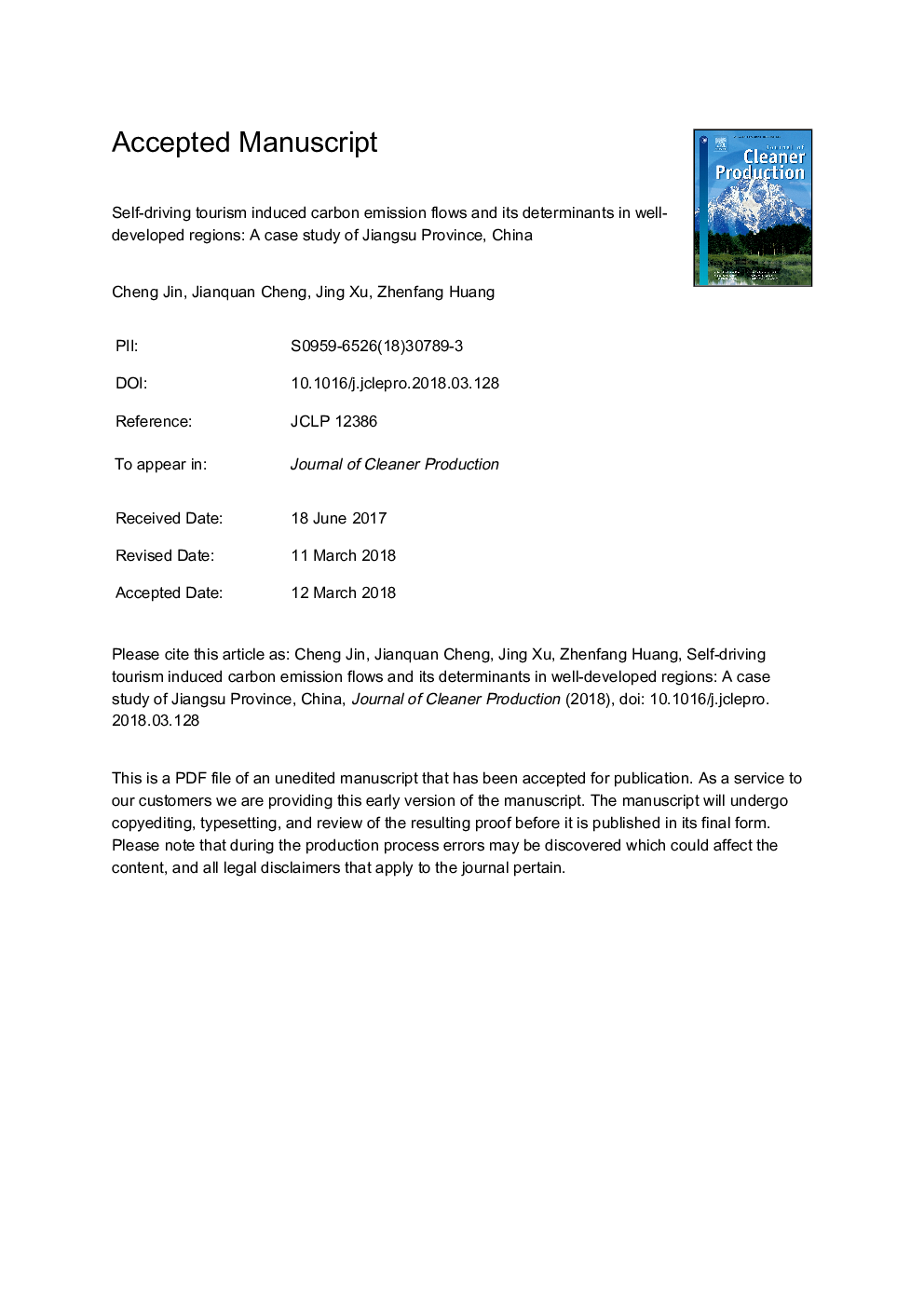| Article ID | Journal | Published Year | Pages | File Type |
|---|---|---|---|---|
| 8096141 | Journal of Cleaner Production | 2018 | 27 Pages |
Abstract
Carbon emissions from the tourism industry are an important measure of the impact tourism has on the environment. Previous studies are predominantly focused on the static estimation of carbon emission from tourism transport. The effective estimation and analysis of carbon emission flows from self-driving tourism, and it's related determinants, has become increasingly important. Using expressway traffic flow data at the level of toll-gate across Jiangsu Province in China (2014), this paper has estimated the carbon emission flows from self-driving tourism between counties, analyzed the spatial patterns of its inflow, outflow and net flows, and modelled the determinants of these flows globally and locally using the geographically weighted regression method. The spatial distribution of these flows show high concentration in the South, gradually decreasing to the North. The two geographically weighted regression models demonstrate that the determinants of both inflows (the per capita gross domestic product. and the scenic spot's score) and outflows (the per capita and total population of permanent residents) indicate spatial non-stationarity across Jiangsu province. The flow perspective and geographically weighted regression methods used in this paper have been proven to be effective in theoretical understanding and methodogical analysis of carbon emission trading. It is concluded that the spatial variation of these determinants has provided important evidence for carbon emission trading at county level. This suggests that local governments should take the variations of per capita gross domestic product, score of attractive spots and total population of permanent residents into the process of estimating carbon emission trading between counties.
Keywords
Related Topics
Physical Sciences and Engineering
Energy
Renewable Energy, Sustainability and the Environment
Authors
Cheng Jin, Jianquan Cheng, Jing Xu, Zhenfang Huang,
